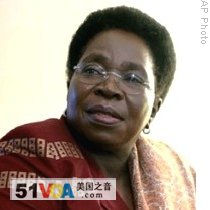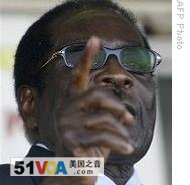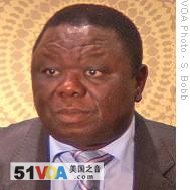Johannesburg
27 February 2009
Southern African ministers meeting in South Africa have pledged to help Zimbabwe's reconstruction and plan to hold a special regional summit on the matter soon.
Ministers of the Southern Africa Development Community ended their meeting Friday in Cape Town with a promise to help Zimbabwe rebuild its economy, infrastructure and social services.
 |
| South African Foreign Minister Nkosazana Dlamini-Zuma (file photo) |
"We are all, in SADC, determined to help Zimbabwe mobilize resources but I can't guarantee how much will be raised when. The economic environment globally, is difficult so we will do our best," said Dlamini-Zuma.
She said SADC leaders are to hold a special summit on Zimbabwe, hopefully before the G-20 summit in April. The ministers said they would approach bilateral and multilateral donors to help finance the effort.
Zimbabwe's new unity government has proposed a $2 billion package aimed at reviving the economy, which has declined by 40 percent in the past 10 years, and restoring deteriorating infrastructure and public services.
Experts estimate that at least $5 billion will be needed to finance the reconstruction long-term.
However, they say Zimbabwe may face difficulties in obtaining funds from some donors because it is behind on repaying previous debts to some of them.
An official with the African Development Bank said his organization would not be able to provide any new financing until such arrears were paid up. But an official with the Development Bank of Southern Africa said Zimbabwe was current with his organization and could seek reconstruction money from it.
Other donors, in particular Western governments, have rejected any support other than direct humanitarian aid to Zimbabwe because of corruption and human rights abuses under President Robert Mugabe and his ZANU-PF party.
 |
| Robert Mugabe (file photo) |
But Western governments have indicated no aid would be forthcoming as long as Mr. Mugabe remains in the government.
There are reports of in-fighting between senior officials of ZANU-PF and Mr. Tsvangirai's Movement for Democratic Change, each of which controls about one-half of the Cabinet ministries.
South Africa's Dlamini-Zuma said SADC ministers had discussed these reports with the Zimbabwean delegates.
"There will be teething problems but they [the Zimbabweans] assured us that they are all determined to make it work. And they have a mechanism which they are already using to deal with all those issues that may be problematic," she said.
 |
| Morgan Tsvangirai speaking to reporters in Johannesburg, 15 Jan 2009 |
The Zimbabwean prime minister also accused senior officials of blocking the release of some 30 political prisoners, some of whom have been detained for months without access to lawyers or medical care.
SADC officials said the issue was raised during the ministerial meeting and the ministers were told the prisoners would be released on bail but would still face the charges against them.
On Saturday Mr. Mugabe will attend a celebration marking his 85th birthday for which organizers say they have raised one quarter million dollars in donations. Mr. Tsvangirai says he will attend.